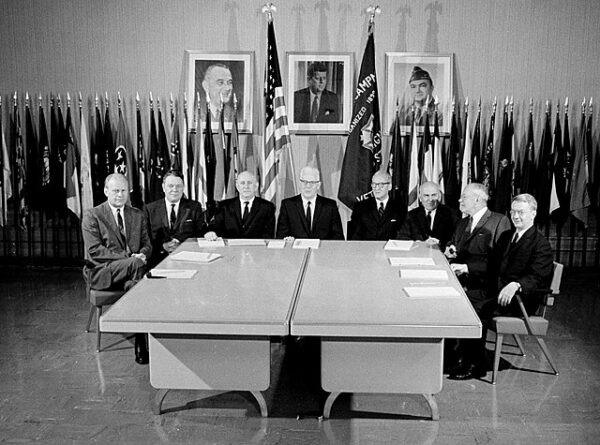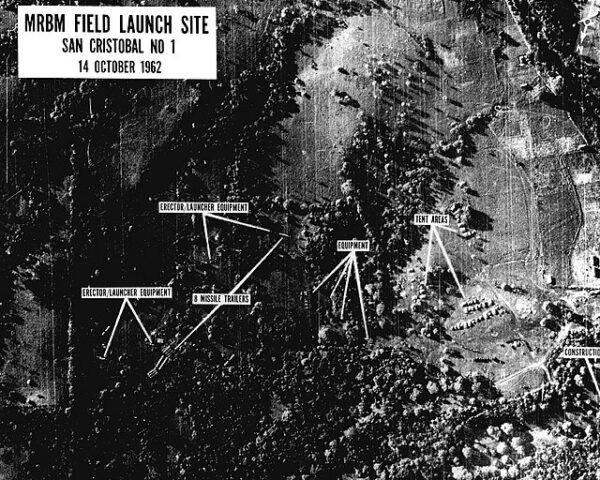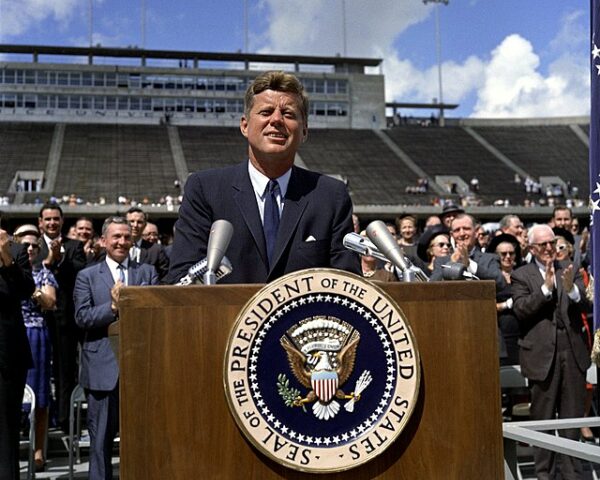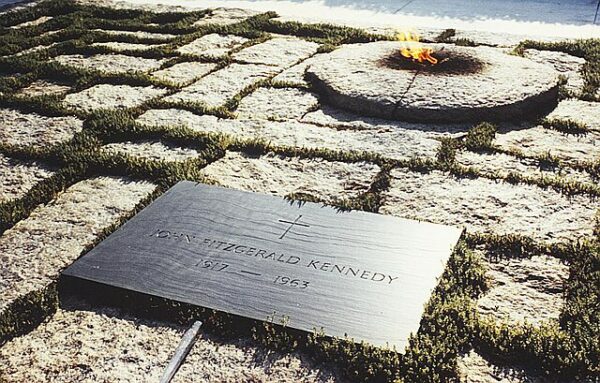On November 29, 1963, just one week after the tragic assassination of President John F. Kennedy in Dallas, Texas, his successor, President Lyndon B. Johnson, made a pivotal decision to address the nation’s grief and confusion. Johnson issued an executive order creating the President’s Commission on the Assassination of President Kennedy—better known as the Warren Commission. This commission was charged with investigating the circumstances of Kennedy’s death and determining whether any conspiracies played a role.
The commission took its name from its chairman, Chief Justice Earl Warren, a prominent leader of the U.S. Supreme Court and one of the most respected legal minds in the country. Warren was joined by six other influential figures, including Senator Richard Russell Jr., Representative Gerald R. Ford, former CIA Director Allen Dulles, former World Bank President John J. McCloy, Senator John Sherman Cooper, and Representative Hale Boggs. With expertise spanning law, intelligence, and politics, the panel brought significant credibility to the investigation.
The creation of the Warren Commission was driven by both public demand and global political concerns. Kennedy’s assassination had left the nation in shock, and conspiracy theories quickly gained traction following the arrest of the alleged assassin, Lee Harvey Oswald, and his subsequent murder by nightclub owner Jack Ruby. President Johnson and his advisors feared that without a thorough and transparent inquiry, public trust in the government would erode, and rumors of foreign involvement—especially during the tense Cold War—could destabilize the nation.
Over the next 10 months, the Warren Commission conducted a far-reaching investigation. It gathered testimony from hundreds of witnesses, analyzed physical evidence, and reviewed thousands of documents. The result of their work, an 888-page report published in September 1964, concluded that Lee Harvey Oswald had acted alone in assassinating President Kennedy and that there was no credible evidence of a broader conspiracy involving domestic or international entities. Similarly, the report determined that Jack Ruby also acted independently when he killed Oswald.
Initially, the Commission’s findings were accepted by most Americans, providing some sense of closure during a turbulent time. However, its conclusions quickly drew criticism. Skeptics pointed to perceived inconsistencies in the evidence, the exclusion of certain witness accounts, and the Commission’s reliance on FBI and CIA reports—agencies some believed had conflicts of interest. These shortcomings fueled decades of debate and alternative theories about Kennedy’s death.
One of the most contested aspects of the Commission’s report was the “single bullet theory.” This theory suggested that one bullet fired by Oswald struck both President Kennedy and Texas Governor John Connally, inflicting multiple wounds. While this explanation was key to the conclusion that Oswald acted alone, many critics argued it was implausible, sparking ongoing skepticism and speculation. Over time, theories implicating the CIA, the Mafia, Cuban exiles, and even elements of the U.S. government emerged, further questioning the official account.
Despite the controversies, the Warren Commission set a precedent for how the federal government approaches high-profile investigations. Its establishment reflected a commitment to transparency and accountability during national crises. Although its findings remain a subject of debate, the Commission’s work is an important chapter in American history.
President Johnson’s decision to form the Warren Commission was both a practical and political move. By appointing respected leaders like Earl Warren, Johnson aimed to provide a definitive explanation for the assassination that could withstand domestic and international scrutiny. In doing so, he sought to reassure a grieving nation and restore trust in its democratic institutions.
The legacy of the Warren Commission remains a complex blend of respect, skepticism, and intrigue. While debates over its conclusions continue, the Commission’s investigation is a lasting testament to the challenges of uncovering truth in the face of tragedy. As the Kennedy assassination remains one of the most analyzed events in U.S. history, the Commission’s work endures as a critical piece of the national narrative.






